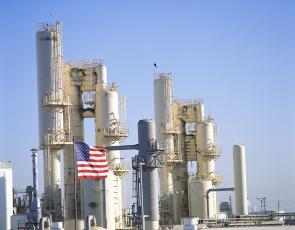WASHINGTON, D.C. — The American Fuel & Petrochemical Manufacturers issued the following statement from Chief Industry Analyst Susan Grissom on Governor Gavin Newsom’s call for legislation that will impose a new, costly mandate on California refiners:
“At best, a fuel inventory mandate amounts to a costly misdiagnosis of California’s supply challenges. At worst, it is a costly attempt to distract from the bigger question of why California has lost so much refining capacity in the first place. California prices are a reflection of policies designed to disincentivize liquid fuels and push fuel producers out of the market. There’s a reason gasoline costs significantly more to make and supply in California than in Texas.
“Imposing minimum product inventories in tightly supplied markets is not going to make up for local refining capacity that’s been lost, nor will it prevent the occurrence of price spikes. More than a decade’s worth of California data show price swings can happen regardless of inventory levels. Having a higher volume of fuel in storage year-round is not a solve because market prices are determined by current supply and expectations for future supply, and the market knows additional compulsory stocks are limited. Price spikes are mitigated when the market has confidence that consumer demand is well-matched with supply, especially local fuel production and imports.
“California refineries are already maximizing gasoline production for drivers. Further building up and maintaining inventories—beyond the many days of supply facilities currently keep—is not a one-time expense. The costs associated with the Governor’s plan are likely to be significant and ongoing, requiring additional fuel imports from overseas, providing imported fuel is even accessible. All told, this plan could permanently elevate everyday fuel supply costs in California.”
Additional reading:
- Refinery turnarounds 101, including how refiners plan for maintenance periods and make alternative supply arrangements to minimize any market impacts
- Bad ideas on the rebound: Why minimum inventories and export restrictions are still a lose-lose
- California Strategic Fuels Reserve Study. The idea of a California fuel reserve has been studied before and the significant costs and limited impacts led to the idea being abandoned.
- Transportation Fuels Assessment: Policy Options for a Reliable Supply of Affordable and Safe Transportation Fuels in California. Even the California Energy Commission recognizes that minimum inventories could impose significant costs on Californians.
The American Fuel & Petrochemical Manufacturers (AFPM) is the leading trade association representing the makers of the fuels that keep us moving, the petrochemicals that are the essential building blocks for modern life, and the midstream companies that get our feedstocks and products where they need to go. We make the products that make life better, safer and more sustainable — we make progress.


